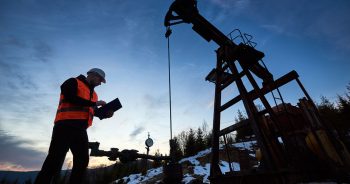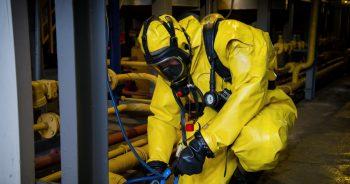Main missions
The Logistics Supervisor plans and organizes logistical activities, including the reception, storage, inventory, and distribution of materials and equipment needed for nuclear power plant operations. He/She ensures that logistical resources are available in a timely manner to avoid service interruptions.
He/She coordinates internal and external transports, ensuring that materials and equipment are moved securely and efficiently between different sites and departments. He/She also supervises loading and unloading operations to ensure compliance with safety standards.
The Logistics Supervisor works closely with other departments to identify and resolve logistical issues, improve processes, and optimize operational efficiency. He/She manages inventories and ensures the accuracy of records while adhering to quality and safety standards.
Job activities
-
Logistics planning: Plan and organize logistical activities, including the reception, storage, inventory, and distribution of materials and equipment.
-
Transportation coordination: Coordinate internal and external transports to ensure the secure and efficient movement of materials and equipment.
-
Operations supervision: Supervise loading and unloading operations, ensuring compliance with safety standards.
-
Inventory management: Manage inventories and ensure the accuracy of records while adhering to quality and safety standards.
-
Interdepartmental collaboration: Work closely with other departments to identify and resolve logistical issues and improve processes.
-
Operations optimization: Propose improvements to optimize the efficiency of logistical operations and reduce costs.
-
Compliance with standards: Ensure that all logistical operations comply with safety standards and regulatory requirements.
-
Training and development: Train and mentor logistical staff to ensure adherence to procedures and quality standards.
Required skills
A Logistics Supervisor in the nuclear energy sector should possess the following skills:
- Excellent skills in logistics management and transportation coordination.
- In-depth knowledge of safety standards and regulatory requirements in the nuclear sector.
- Ability to manage inventories and maintain accurate records.
- Supervisory and staff training skills.
- Aptitude for identifying and resolving logistical issues.
- Strong capacity to collaborate with different departments.
- Excellent organizational and planning skills.
- Keen sense of process optimization and cost reduction.
Other Installation & Commissioning Jobs
-

Drilling Superintendent – Oil and Gas Jobs – Energy Consultant
A Drilling Superintendent in the oil and gas industry plays a critical role in ensuring the success, safety, and efficiency of drilling operations. They combine technical expertise, leadership skills, and regulatory knowledge to manage drilling projects from conception to completion.
-

Operations Manager – Nuclear Energy Jobs
The Operations Manager in the nuclear energy sector is responsible for managing and overseeing all operations of nuclear facilities. He/She ensures the efficiency, safety, and regulatory compliance of operations, ensuring the smooth functioning of nuclear power plants.
-

Radioprotection Engineer – Nuclear Energy Jobs
The Radioprotection Engineer in the nuclear energy sector is responsible for ensuring the protection of workers, the public, and the environment from the harmful effects of ionizing radiation. He/She ensures compliance with radioprotection standards and oversees the implementation of prevention and control measures for radiological risks.
-

Outage Maintenance Power Generation Engineer – Nuclear Energy Jobs
The Outage Maintenance Power Generation Engineer in the nuclear energy sector is responsible for planning, coordinating, and supervising maintenance activities during scheduled outages of nuclear power plants. He/She ensures that the power generation equipment is maintained in optimal working condition while adhering to safety standards and regulatory requirements.
-

Radiation Protection Supervisor – Maintenance – Nuclear Energy Jobs
The Radiation Protection Supervisor in the nuclear energy sector is responsible for ensuring the protection of workers, the public, and the environment from ionizing radiation during the operations and maintenance phase of nuclear facilities.
-

Radiation Protection Field Coordinator – Maintenance – Nuclear Energy Jobs
The Radiation Protection Field Coordinator in the nuclear energy sector plays a key role in managing and coordinating radiation protection activities during the operations and maintenance phases of nuclear facilities. He/She ensures strict compliance with radiological safety standards, plans interventions in controlled areas, and ensures adherence to regulatory requirements in close collaboration with technical, HSE teams, and regulatory bodies.
-

Lead Nuclear Reactor Operations Engineer – Maintenance – Nuclear Energy Jobs
The Lead Nuclear Reactor Operations Engineer is a highly qualified professional responsible for supervising and optimizing the operation of nuclear reactors, ensuring their performance, safety, and compliance with regulatory requirements.



